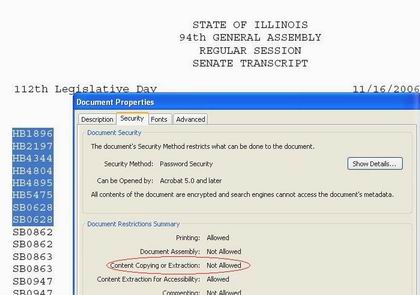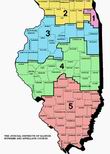 A number of sites reported [Gizmodo, Slashdot, Glading, Techbuzz, Wired, Ars Technica] Pirate Bay’s announcement that it wants to buy its own island nation to avoid those pesky copyright laws. Pirate Bay started a donation drive to purchase the man-made island called Sealand. Ars Technica‘s article provides the most detailed coverage of the situation. The island is a “World War II-era British naval platform sitting in the sea off the coast of Harwich in southern England.” Sealand has a website explaining its history. The site states:
A number of sites reported [Gizmodo, Slashdot, Glading, Techbuzz, Wired, Ars Technica] Pirate Bay’s announcement that it wants to buy its own island nation to avoid those pesky copyright laws. Pirate Bay started a donation drive to purchase the man-made island called Sealand. Ars Technica‘s article provides the most detailed coverage of the situation. The island is a “World War II-era British naval platform sitting in the sea off the coast of Harwich in southern England.” Sealand has a website explaining its history. The site states:
Sealand was founded on the principle that any group of people dissatisfied with the oppressive laws and restrictions of existing nation states may declare independence in any place not claimed to be under the jurisdiction of another sovereign entity. The location chosen was Roughs Tower, an island fortress created in World War II by Britain and subsequently abandoned to the jurisdiction of the High Seas. The independence of Sealand was upheld in a 1968 British court decision where the judge held that Roughs Tower stood in international waters and did not fall under the legal jurisdiction of the United Kingdom.
Torrent Freak provides a list of alternative island nations that might work if the deal with Sealand doesn’t fly.
It seems that a company called Havenco is already (or has in the past) providing webhosting from Sealand. Havenco states “HavenCo provides a place for secure e-Commerce, privacy-protected Internet services and uncensorable free speech.” Uncensorable free speech? This is the same type of argument that Yahoo made in 2000 to a French Court. There, the French court ordered Yahoo to block Nazi goods from appearing for sale on web pages in France. Yahoo’s servers were not in France. But as Tim Wu explained in a Legal Affairs article, the plaintiff showed that Yahoo could identify and screen users by geography. Yahoo eventually complied because it had assets in France that were at risk of seizure.
Whether its HavenCo or Pirate Bay operating on Sealand or some other micronation, it is doubtful that a rouge company can escape influence of “U.S. content owners.” Pirate Bay needs internet access, right? Otherwise only those people that fly in and live on the island can partake of the content on Pirate Bay’s servers. Looking at the Sealand platform, I’m not sure people will be beating down their door to live there. Plus the platform’s size means only a limited number of people could fit on it. So, Pirate Bay will need a company in some other nation to provide a connection to the internet. The connection could possibly come from England because England is close to Sealand.
Yesterday, Market Watch reported the International Federation of the Phonographic Industries (IFPI) — which represents the recording industry worldwide — “threatened to take legal action against Internet Service Providers if they failed to take action against users who illegally upload and download music.” The IFPI Chairman John Kennedy said:
That job (of prosecuting file-sharers) shouldn’t be ours – it should be done by the gatekeepers of the Web, the Internet Service Providers, who unquestionably have the technical means to deal with copyright infringement if only they would take responsibility for doing so.
Here, if Pirate Bay comes up with the funds to purchase an island nation, the IFPI is going to sue whoever is providing Pirate Bay with internet access. If the ISP is in the UK, the IFPI might sue them in the UK courts. The IFPI might bring a claim before the WTO. The IFPI might employ diplomatic pressure of other nations to force the nation where the ISP is located to shut down the connection.
According to HavenCo “Sealand currently has no specific regulations regarding patents, libel, restrictions on political speech, cryptography, restrictions on maintaining customer records, DMCA or music sharing services.” But as the Yahoo case shows, that may not matter. Even Bill Gates criticized DRM, but unless you want to live on Pirate Bay’s island, the pirate’s treasure is probably not going to be accessible to you via the internet from treasure island for long.
 Scanned text-searchable transcripts of the Illinois House and Senate floor debates going back to 1971 are now available on the
Scanned text-searchable transcripts of the Illinois House and Senate floor debates going back to 1971 are now available on the 
 Answer: Don’t read it… let the computer do it.
Answer: Don’t read it… let the computer do it. Cnet
Cnet  A number of sites reported [
A number of sites reported [ Adriana
Adriana